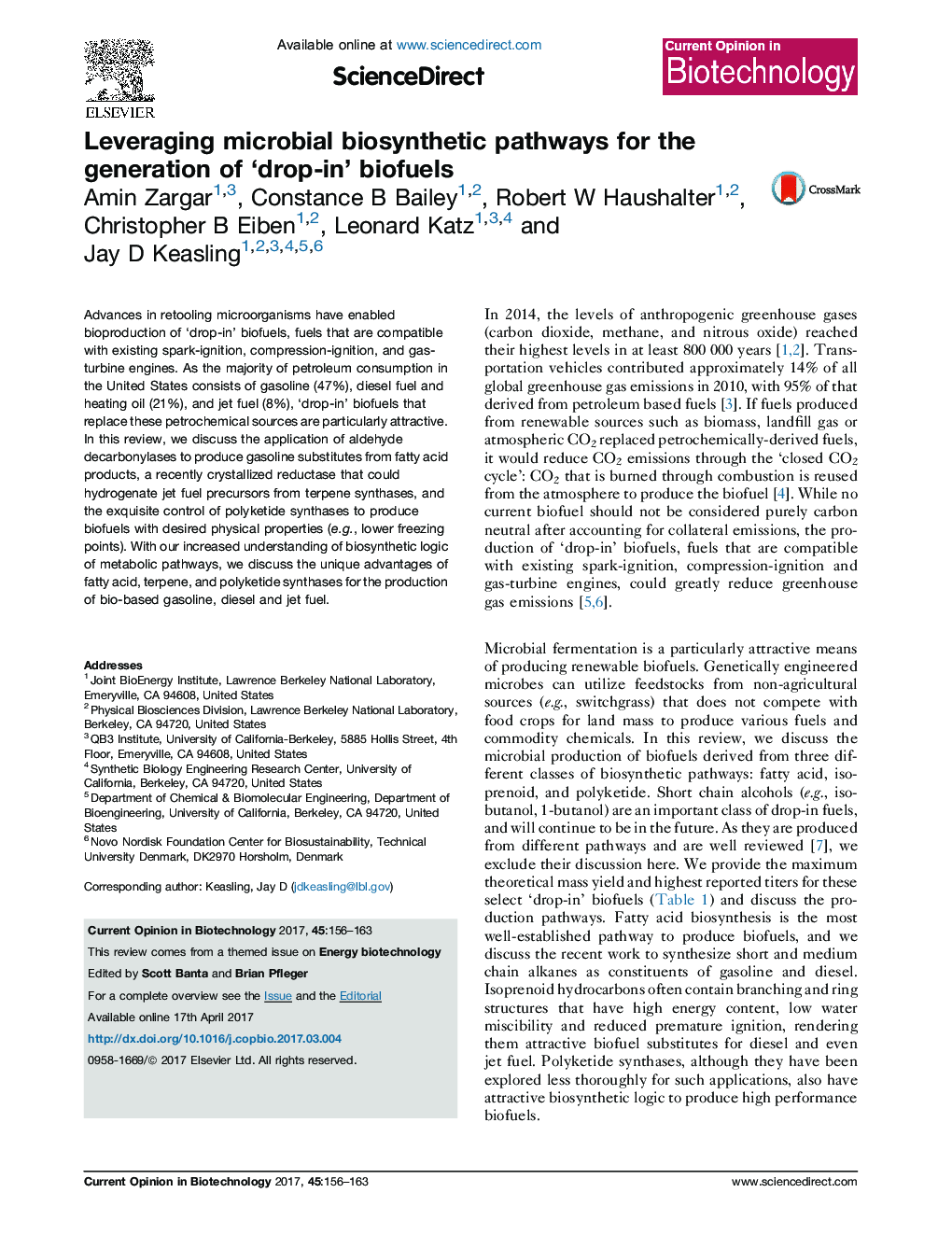| کد مقاله | کد نشریه | سال انتشار | مقاله انگلیسی | نسخه تمام متن |
|---|---|---|---|---|
| 6451662 | 1416326 | 2017 | 8 صفحه PDF | دانلود رایگان |
• Fatty acid, isoprenoid and polyketide pathways for production of drop-in biofuels.
• FAS pathways produce alkanes via newly discovered fatty aldehyde decarbonylase.
• Crystallized geranylgeranyl reductase hydrogenates isoprenoid-based double bonds.
• Polyketide synthases for generation of designer biofuels.
Advances in retooling microorganisms have enabled bioproduction of ‘drop-in’ biofuels, fuels that are compatible with existing spark-ignition, compression-ignition, and gas-turbine engines. As the majority of petroleum consumption in the United States consists of gasoline (47%), diesel fuel and heating oil (21%), and jet fuel (8%), ‘drop-in’ biofuels that replace these petrochemical sources are particularly attractive. In this review, we discuss the application of aldehyde decarbonylases to produce gasoline substitutes from fatty acid products, a recently crystallized reductase that could hydrogenate jet fuel precursors from terpene synthases, and the exquisite control of polyketide synthases to produce biofuels with desired physical properties (e.g., lower freezing points). With our increased understanding of biosynthetic logic of metabolic pathways, we discuss the unique advantages of fatty acid, terpene, and polyketide synthases for the production of bio-based gasoline, diesel and jet fuel.
Figure optionsDownload high-quality image (197 K)Download as PowerPoint slide
Journal: Current Opinion in Biotechnology - Volume 45, June 2017, Pages 156–163
